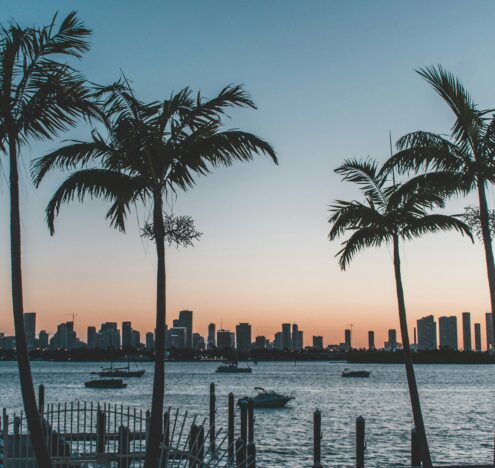We only occasionally hear about the human cost of the endless “war on terror” that Congress wrote into being when it passed the 2001 Authorization for Use of Military Force (AUMF) — a response to the attacks of Sept. 11, 2001 that sent US forces and weapons from central Africa to the Philippines and many places in between.
We unfortunately also very rarely center women’s voices, perspectives, and experiences during conversations about this tragic legacy. As Congress contemplates repealing and “replacing” the 2001 AUMF, we must sit with these voices, learn from their wisdom, and reflect on peaceful, justice-advancing paths forward.
“The war on terror is a war on women,” Fatima* said.
The young Muslim woman from Marawi City, located in the Philippines’ southern Mindanao Island — who asked to have her name changed for security reasons — video-called me from a temporary shelter, where she has been living since 2017. That was when the Philippine military began one of its “most intensive” counterterrorism campaigns: a siege on Marawi to fight a group of militants linked to the Islamic State armed group, who were exploiting and endangering the local population. The five-month siege of heavy shelling and street-level fighting resulted in unprecedented instability, with hundreds of thousands of people like Fatima displaced and more than 1,000 people killed.
“The war was for me, and [others] in Marawi, the very worst,” Fatima said. “The siege gave people in Marawi the worst nightmare and the worst impact of life. And we are hoping and praying it will never happen again in our place, or in any other country.” While almost all of the population fled, people who stayed faced harm from both warring parties. “Women became targets of sexual violence, deaths, injury, illness, disability — the most threatening consequences of war.”
Yet this is not a story about just the Philippines. The United States supported the Philippine military during the Marawi siege that devastated Fatima’s and so many others’ lives. In the years leading up to and during the siege, US counterterrorism policy — from supplying weapons and training to the Philippine security forces to encouraging a discourse that privileged defeating terrorism above all else — abetted violence against communities across the Philippine archipelago islands.
US-Philippines Counterterrorism Cooperation
While the Philippine government has, for years, invoked counterterrorism to commit violence, the US has been deeply complicit in that abuse. In 2002, shortly after the 9/11 attacks, the United States launched Operation Enduring Freedom – Philippines, which targeted extremist groups in the Mindanao Island where Fatima resides. The Philippine government, under then president Gloria Macapagal Arroyo, immediately pledged support for American counterterrorism operations. These operations opened vast avenues to US military engagement in the Philippines through military training, security assistance, and the Balikatan, or “shoulder-to-shoulder,” military exercises.
Over the course of the “war on terror,” US officials have been quick to praise the Philippines government as a counterterrorism partner. At a 2011 congressional hearing, a Department of Defense witness praised the Philippine government as “an important and capable military partner” that has “worked aggressively with us to counter the threat from al-Qaeda.” Last year, Seth Blaylock, a former Counterterrorism Unit Chief in Manila, justified ongoing US-Philippines military cooperation by describing the archipelago as a “hotbed of terrorism.”
What do these widely accepted US assumptions enable? According to feminist, social activist, and human rights defender Jade Leung, the “war on terror” has meant “giving more attention to meeting the requisites of mass killing, rather than [those of] giving life.”
Being the largest recipient of US military assistance in the Southeast Asia-Pacific region has not brought the Philippines more security. Rather, as Leung made clear, the Philippine government has utilized “counterterrorism” for “mass killing” aimed at threats to the status quo, carried out sometimes directly and sometimes with the tacit support of government officials. The human rights organization Karapatan documented 427 extrajudicial killings, 537 cases of frustrated killings, and 226 cases of torture from July 2016 to December 2021 across five regions targeted for counterinsurgency campaigns.
From “War on Terror” to a War on Civil Society
Having spent her life in Baguio City, Luzon, a northern island in the Philippines, Leung has seen “counterterrorism” come to mean a lot more than going after armed militants. She argued that the war on terror, “did not spare the said ‘communist groups,’ and branded them as ‘terrorists.’” She said the US and the Philippine governments shaped the narrative that “terrorism is just about everywhere and we need the US to help us combat [it].”
After 9/11, the Philippines’ security policy underwent a shift, from focusing on anti-communism to counterterrorism, both funded and supported by the US government. Before the “war on terror” began, the Philippine government had utilized US support and investment at the height of the Cold War to target leftist groups.
The dawn of the “war on terror” gave the Philippine government an opportunity to label adversarial groups as terrorists and crack down on them through the full mobilization of the state’s resources and power. Leung explained the war “paved the way to make and justify laws and policies like […] anti-terror laws,” including one signed by then President Rodrigo Duterte in 2020 to allow the warrantless detention of terrorism suspects.
The “war on terror” has meant “giving more attention to meeting the requisites of mass killing, rather than [those of] giving life.”
Jade Leung
As an activist and lead convenor at Young Women Initiatives (YouWIn), an organization that empowers young women, Indigenous Peoples, and LGBTQ+ women in the Philippines, Leung has experienced the government’s crackdown on left-leaning activities. Some of her female colleagues have been subject to red-tagging, the practice of labeling individuals as communists and making them potential government targets.
Another one of her colleagues, and a network member of YouWIn’s Nuclear and Coal-Free Bataan Movement, Gloria Capitan, was shot and killed by two men on motorcycles, a case of “riding-in-tandem” that is all too often encouraged or even organized by government officials. These murders by gunmen, usually on a motorcycle, were averaging four a day not too long ago.
“As activists, we are the number one target, because we oppose militarism, and because we always say ‘down with US imperialism,’” Leung told me. She paused and added emphatically, “And I will always say that! Even on record!”
The Legacies of US Colonialism in the Archipelago
US foreign policy aimed at countering terrorism and countering communism sit in an even longer history of US militarism in Leung and Fatima’s country, stretching back to the 19th century. In Baguio City, Leung walks on streets named after American dignitaries and generals, like Leonard Wood Road and F. B. Harrison Avenue. In what she calls such a “highly Americanized” region of the Philippines, “we Filipinos are known as Little Brown Americans.”
The longstanding presence of American troops in the Philippines has led to disturbing cases of violence against women, though unfortunately, as Leung stressed, the vast majority go unrecorded. One of the many stories is that of Jennifer Laude, a transgender woman who was killed by US service member Joseph Scott Pemberton in October 2014. He was convicted of homicide, though Duterte later granted him an absolute pardon.
The “war on terror,” in Leung’s perspective, “is a projection and assertion of US dominance and arrogance. […] And belonging to a third-world country — we are an easy target.”
Fatima and Jade Leung’s Alternatives
The narrative of counterterrorism was spread and internalized by youths, Leung told me. “That’s what they taught us in school: the Philippines is at war, the US will help us.”
But not many found the US’ exported counterterrorism model to be helpful. To Fatima, the US-backed counterterrorism siege in Marawi “ended everything.” She said, “Being one of the victims, it was a really shocking and unforgettable war. All the happiness, the precious things, income, livelihood, and even our lives became like ashes. Almost all of the parts of Marawi have been totally damaged.”
Fatima fled Marawi City to find refuge in a neighboring town. She mourns, “We remember our home and feel so much pain and hurt.” Six years after the siege, Fatima and many Marawi people remain displaced. The psychological impact of the siege still sits with her. She and other women at the shelter experience “the feeling of being nervous and scared.” For her, “The main effect of the war against us as women is our right and dignity as a woman.”
And the recovery process in Marawi has been slow. Though people in the area still call for the government to push through with renovations, “Marawi is the same.” She called on the government to devote more attention and resources to the area’s recovery.
Now, Fatima works at a local women’s civil society organization supporting democracy initiatives. She and Leung continue with their work to support women engaging in activism to counter militarism and violence — Fatima in Marawi, Leung in Luzon. In Leung’s words, “Peace is cheap.” But she knows who she is fighting. With its booming business, “War is more profitable.”
Amid the legacies of more than a century of US militarism in the Philippines and the subsequent war on terror, Fatima and Leung have a different view of what real security looks like. For them, it begins with women-led demilitarization, including through local organizing and dialogue sessions between community members and their local governments. This peacebuilding work will do more to counteract instability and violence than all the counterterrorism funding, weapons, and operations could.
As Fatima said: “Women are central in the fight for peace.”





















